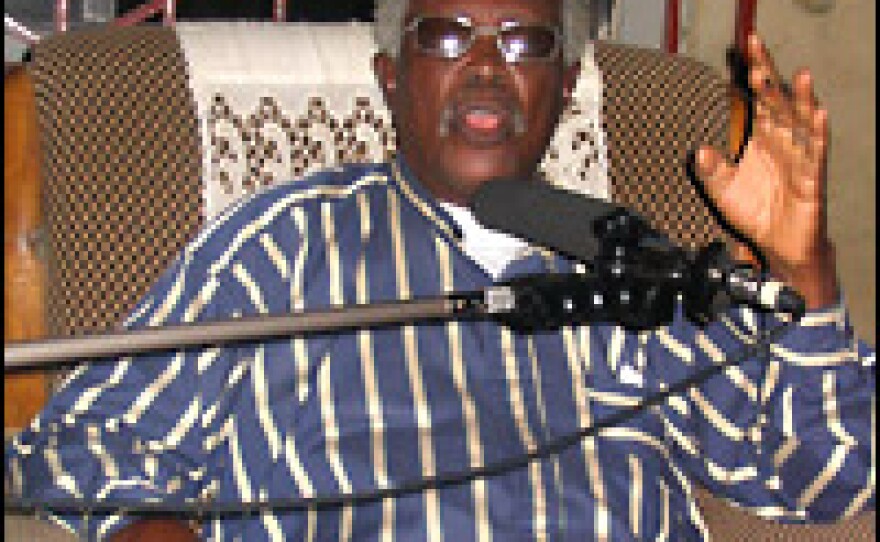In an oil-rich part of Nigeria, there's a town in ruins. Some residents were killed this year, and others made homeless, in a dispute over an oilfield.
Odioma, Nigeria, is a case study of what sometimes goes wrong when Western economies depend on the world's poorest places. Nigeria sends 1.2 million barrels of oil per day to the United States.
The biggest producer, Royal Dutch Shell, has been drilling for decades in the lowlands of the Niger River Delta. Shell's constant problem is avoiding clashes between a modern industry and a traditional society.
The trouble in Odioma started when Shell paid a neighboring area for the right to drill on property that both Odioma and its neighbor claimed.
Then, early this year, an attack on a boat left 11 people dead, some of them government officials. The murders were blamed on a gang from Odioma.
The military sent in a force that regularly puts down unrest in the oil region. When the troops came to Odioma, the murder suspects escaped.
The rest of the town did not. Residents claim another 17 people were killed as the town burned in February.
The government stands by its actions and blames local thieves for the town's destruction.
A larger question is whether the oil industry -- fueled by western demand -- started the chain of deadly events.
Two years ago, Shell consultants said the company was paying for land in ways seen as unfair.
That warning came in a larger report on Shell's security strategy. The report said that several Shell policies contribute to the Delta's violence.
The consultants warned that, without big changes to how the giant company works with the government and the communities of the delta, a discontent delta population could drive Shell out of the oilfields by 2008.
Copyright 2022 NPR. To see more, visit https://www.npr.org. 9(MDAzMjM2NDYzMDEyMzc1Njk5NjAxNzY3OQ001))







